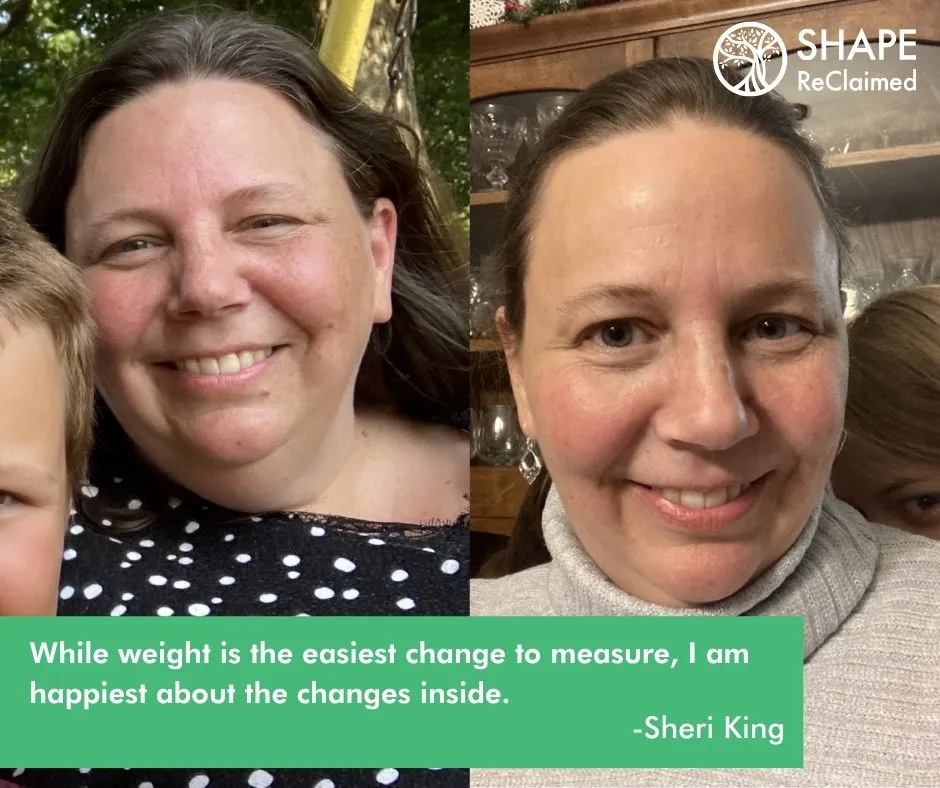Unlocking the Marvels of Vitamin D
- Gwen Krehbiel

- Feb 20, 2024
- 6 min read
Updated: Jan 10, 2025
Navigating Vitamin D from Hormone to Lifestyle Influences and Food

Hormones play a pivotal role in orchestrating vital bodily functions, including digestion, growth, and mood regulation. Among these, Vitamin D stands out, not just as a nutrient but as a hormone, thanks to its unique properties and integral roles in the body.
Vitamin D earns its hormone status through the remarkable ability of our skin to synthesize it when exposed to sunlight. This endogenous production sets it apart from other vitamins that solely come from food sources. Sunlight triggers a reaction in the skin, synthesizing vitamin D, which is then utilized by various organs and tissues in our body.
Despite our ability to naturally produce vitamin D, certain lifestyle factors can deplete our levels. Smoking, for instance, has been linked to decreased production of the active form of vitamin D in lung cells. Cigarette smoke's impact on vitamin D receptors further contributes to depletion, highlighting the need for attention to these factors.
Besides smoking, several other lifestyle factors can contribute to the depletion of vitamin D levels.
These factors include:
Limited Sun Exposure:
Inadequate exposure to sunlight, which is crucial for the synthesis of vitamin D in the skin. Factors such as spending most of the time indoors, using excessive sunscreen, and living in regions with minimal sunlight can impact vitamin D levels.
Dark Skin Tone:
People with darker skin tones have higher melanin levels, which can reduce the skin's ability to produce vitamin D in response to sunlight. This may result in lower vitamin D levels compared to individuals with lighter skin.
Obesity:
Vitamin D is a fat-soluble vitamin, and it can be sequestered in fat tissue. Individuals with obesity may have lower bioavailability of vitamin D because it is stored in fat rather than being readily available for use.
Certain Medical Conditions:
Medical conditions that affect fat absorption, such as celiac disease, inflammatory bowel diseases (IBD), and pancreatic disorders, can impact the absorption of fat-soluble vitamins, including vitamin D.
Aging:
Aging is associated with a decline in the skin's ability to produce vitamin D and a decrease in the efficiency of the kidneys to convert vitamin D into its active form.
Use of Sunscreen:
While sunscreen is important for protecting the skin from harmful UV rays, excessive and consistent use of high SPF sunscreen can limit the skin's ability to produce vitamin D.
Lack of Outdoor Activities:
A sedentary lifestyle or lack of outdoor activities can contribute to reduced sunlight exposure, further affecting vitamin D synthesis.
Additionally, certain medications, including antiepileptics, antibiotics, antihypertensive, and anti-inflammatories, can interfere with vitamin D levels. Certain medications can interfere with vitamin D levels and metabolism.
Here are some prevalent classes of medications known to impact vitamin D:
Antiepileptic Drugs (AEDs):
Medications used to treat epilepsy, such as phenytoin, phenobarbital, and carbamazepine, have been associated with lower vitamin D levels.
Antibiotics:
Certain antibiotics, such as rifampin, can enhance the metabolism of vitamin D, potentially leading to lower levels.
Antihypertensive Medications:
Some antihypertensive drugs, particularly certain types of thiazide diuretics (e.g., hydrochlorothiazide), may affect calcium metabolism and vitamin D levels.
Anti-Inflammatory Drugs:
Glucocorticoids (corticosteroids), commonly used for their anti-inflammatory properties, can interfere with vitamin D metabolism and reduce its levels.
It's essential for individuals taking these medications to be aware of the potential impact on vitamin D and to discuss with your healthcare provider. Supplementation becomes crucial for individuals on these medications, ensuring optimal levels for overall health. However, any decision to adjust medications or initiate supplementation should be made in consultation with a healthcare professional who can assess and provide personalized recommendations.
Low levels of vitamin D have been associated with various health risks.
It's important to note that correlation does not necessarily imply causation, and individual health conditions can vary. However, some potential health risks associated with low vitamin D levels include:
Bone Health Issues:
Vitamin D is crucial for calcium absorption, and low levels may lead to weakened bones, osteoporosis, or rickets (especially in children).
Increased Risk of Infections:
Adequate vitamin D is linked to a well-functioning immune system. Low levels may contribute to increased susceptibility to infections and illnesses.
Mood Disorders:
Some studies suggest a potential link between low vitamin D levels and mood disorders, including depression and seasonal affective disorder (SAD).
Muscle Weakness and Pain:
Vitamin D deficiency may contribute to muscle weakness and pain, affecting overall mobility and strength.
Cardiovascular Issues:
Some research has explored associations between low vitamin D levels and cardiovascular diseases, including hypertension and heart disease.
Cognitive Decline:
There is ongoing research into the potential role of vitamin D in cognitive function, and low levels have been linked to cognitive decline in some studies.
Increased Cancer Risk:
Some studies have suggested associations between low vitamin D levels and an increased risk of certain cancers, although the evidence is compelling but not conclusive.
Autoimmune Diseases:
Low vitamin D levels have been linked to an increased risk of autoimmune diseases, such as multiple sclerosis and rheumatoid arthritis.
Compromised Metabolic Health:
Vitamin D may play a role in insulin sensitivity, and low levels have been associated with an increased risk of type 2 diabetes.
Migraines and Headaches
Research suggests that Vitamin D supplements may help reduce the frequency, duration, and intensity of migraines. A large percentage of people with migraines are deficient or insufficient in Vitamin D. Supplementation with 1,000–4,000 IU of Vitamin D daily may not only decrease migraine attacks but also improve depression, sleep quality, and overall quality of life. The potential mechanisms include reducing CGRP (calcitonin gene-related peptide) levels and providing neuroprotective and antioxidant effects in the brain.
It's crucial for individuals to maintain adequate vitamin D levels through a combination of sunlight exposure, dietary sources, and, if necessary, supplementation. If you are concerned about vitamin D status or you are experiencing symptoms related to deficiency, a simple blood test can determine your vitamin D level.

Here's a list of foods that are good sources of vitamin D, along with approximate amounts:
Salmon:
Cooked Salmon (3.5 oz): 570 IU
Mackerel:
Cooked Mackerel (3.5 oz): 360 IU
Sardines:
Canned Sardines (3.5 oz): 480 IU
Cod Liver Oil:
1 tablespoon: 1,360 IU
Egg Yolks:
Large Egg Yolk: 40 IU
Fortified Foods:
Fortified Orange Juice (1 cup): 137 IU
Fortified Milk (1 cup): 120 IU
Fortified Yogurt (6 oz): 80 IU
Fortified Breakfast Cereal (1 cup): Varies
Beef Liver:
Cooked Beef Liver (3.5 oz): 49 IU
Remember that the amounts can vary based on factors like preparation methods and brand differences, and these values are approximations. Also, it's important to consider factors such as sun exposure and, if needed, supplementation to ensure adequate vitamin D levels.
BUY PROFESSIONAL QUALITY SUPPLEMENTS: Our clients and guests can purchase professional grade supplements - always at 10% off retail -and 15% off with auto-ship - and also enjoy free shipping on all orders over $50. Click "Shop Now" to create your personal account, see our favorites, and browse through Fullscript's entire catalogue of over 20,000 health and wellness products.
Yikes! They say that living “above the 37th parallel” puts someone at risk of vitamin D deficiency in winter. Where is that, and should I be worried?

While sunlight and foods like egg yolks, salmon, and liver serve as vitamin D sources, they may not always suffice. Supplementation, such as our high-quality vitamin D supplements, becomes essential, especially for those with limited sun exposure or residing in regions with scarce sunlight. Studies reveal that individuals above the 37th parallel North may face a higher risk of vitamin D deficiency due to reduced sunlight availability.
At Krehbiel Natural Health, we acknowledge the vital role of vitamin D in overall health. Our range of high-quality supplements, including Vitamin D and K2 with D3 blends, caters to varied needs. With strengths ranging from 1,000 IU to 50,000 IU, we tailor solutions to individual health requirements.
In conclusion, the recognition of vitamin D as a hormone unveils its multifaceted role in the body. Despite depleting factors, we have avenues to optimize vitamin D intake through sunlight, dietary sources, and supplementation. Understanding its importance and taking proactive steps ensures we support overall well-being, maintaining the harmonious functioning of our intricate bodily systems.
Medical disclaimer: This information is not intended or implied to be a substitute for professional medical advice, diagnosis or treatment. Never disregard professional medical advice or delay seeking medical treatment. Medical conditions require medical care.
Let’s Ignite Your Wellness Journey this Year!
Let’s make this year the year you get serious about helping you to decrease inflammation across the board i.e. blood sugar, blood pressure, strengthen immune function, improve digestion, reduce elevated lipids, restore gut health, improve joint health, stabilize emotions, balance hormones, boost energy, decrease pain and shed toxic weight. Let's kick lifestyle diseases to the curb once and for all!









I always learn something new. Thanks for the vitamin D info.